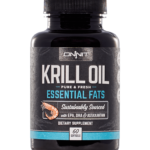If you missed my recent series of posts ‘The science behind weight loss‘ that separated the myths about dieting from the realities of exercise and nutrition, it is well worth going back and checking that out.
From that series, you might have been interested to find out that weight loss is not simply a math equation based on energy in and energy out. Yet, the mantra of the government and food industry is that people should just eat less, choose a “balanced diet,” and exercise more. I’m here to tell you that this does not work. If it did, we’d all just eat less, exercise more, and be fit and healthy for life. How’s that working out for everyone?
The truth is that the quality of what you eat is far more important than how much you eat.
The body is not a closed system, it’s dynamic and it’s responsive to the quality of the calories you’re eating—the type of information that you’re fueling your body with.
Eating poor quality food is like talking to your body over a bad connection, it simply can’t understand how to use that information.
A recent study in JAMA comparing different types of diets found that as long as participants focused on the quality of their food, they did not have to worry about quantity. Isn’t that nice to hear? If you’re eating wholesome foods in their most natural forms you don’t need to count calories, your body understands the information it’s being given and how to use it properly.
Another myth in the nutrition world is that fat makes you fat, but this couldn’t be further from the truth. A crossover trial from Dr. David Ludwig and his Harvard colleagues looked at individual reactions to different kinds of diets. When participants ate a high-fat diet with low-starch content they burned 300 more calories a day than when they ate a high-carb diet with the exact same amount of calories! And, eating a high-fat diet led to beneficial improvements in cholesterol, insulin sensitivity, and markers of inflammation. Your body needs fat to function and find its ideal weight, you just have to choose the right kinds.
The composition of your food matters; Wonder Bread and broccoli are not the same kinds of carbs; likewise, soybean oil and coconut oil are totally different kinds of fats. Your body is smart, it knows the difference, and it knows which of these are supplying quality information and which are toxic, leading to weight gain.
So here’s how to feed your body with the right information.
- Eat a diet with a very low glycemic load – low in sugar, flour, and refined carbohydrates of all kinds.
- Eat mostly vegetables and some fruit. The deeper the colors, the more variety, the better. This provides a high phytonutrient content protective against most diseases.
- Eat a diet that is low in pesticides, antibiotics, and hormones and no or low in GMO foods.
- Stay away from chemicals, additives, preservatives, dyes, MSG, artificial sweeteners, and other “Franken Chemicals” that you would never have in your pantry.
- Eat quality fats—omega-3 fats for all! Eat plenty of olive oil, nuts, seeds and avocados.
- Make sure you’re getting enough protein for appetite control and muscle synthesis, especially in the elderly.
- Choose foods that are ideally organic, local, and fresh. Grass-fed or sustainably raised meats are also the best option if you consume animal protein.

If you’re ready to stop counting calories and find a healthy weight through real, wholesome foods, a copy of Food: What the Heck Should I Eat? on Amazon today
Enjoy,
Scott
PS> If you enjoyed this post, please Share it with your friends using the Social Media widgets at the side and bottom.

